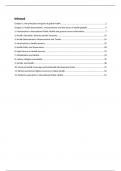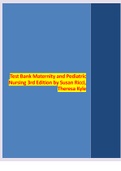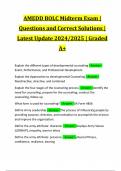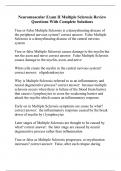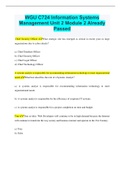College aantekeningen
Samenvatting Internationale volksgezondheid (AB_470088) Gezondheidswetenschappen
Samenvatting van alle hoorcolleges van het vak internationale volksgezondheid/ International Public /health, (keuzevak van o.a. gezondheidswetenschappen). HEt document bevat ook nog twee hoofdstukken uit het boek samengevat. Deze samenvatting bevat echt alles wat je voor het tentamen moet weten, ik...
[Meer zien]
